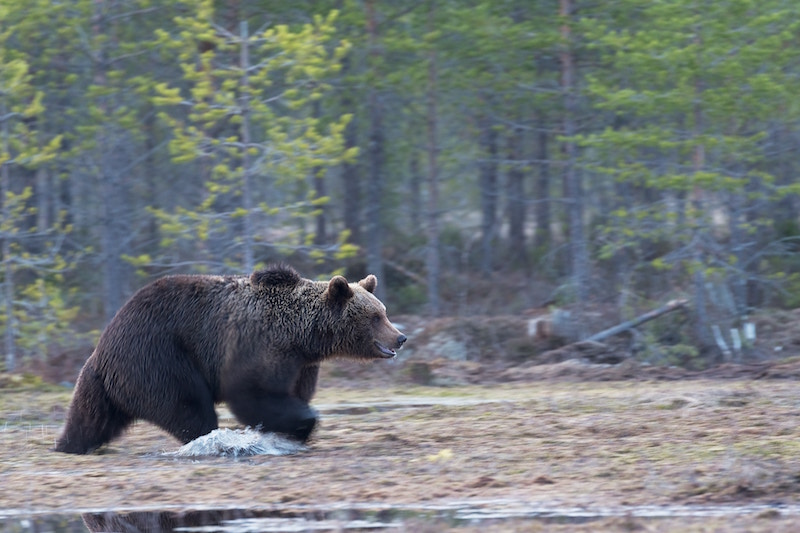In this post, I’m going to explain the most common suffixes (endings) for the noun formation in German.
The resulting nouns are always feminine, no exceptions to this rule! ?
1. –ung (corresponds to -tion/-ing)
This ending is used if you want to change a verb into a noun. Nouns with this ending refer to the act or result of the activity expressed by the verb.
How does it work? Just remove the infinitive ending –en in order to obtain the stem. Now add –ung to the stem:
enden ➤ end-en ➤ end (stem) ➤ End-ung ➤ Endung
Here are some examples:
- senden (send, emit) ➤ Sendung (mailing, emission/TV program)
- entscheiden (decide) ➤ Entscheidung (decision)
- wiederholen (repeat) ➤ Wiederholung (repetition)
- entschuldigen (apologize) ➤ Entschuldigung
- untersuchen (examine/explore) ➤ Untersuchung
- ablehnen (reject/decline) ➤ Ablehnung
- entschädigen (compensate) ➤ Entschädigung
- zerstören (destroy), stören (interrupt) ➤ (Zer-)Störung
- (nach)forschen (investigate/research) ➤ (Nach-)Forschung
- wiedergutmachen (put right) ➤ Wiedergutmachung (rectification)
- ein Wort bilden (form a word), (aus)bilden (educate) ➤ Wortbildung, (Aus-)Bildung
- kreuzen (cross) ➤ Kreuzung (crossroad, intersection)
- Verbs in –ern remove only the -n: (ver)ändern (change) ➤ (Ver-)Änderung
- Verbs in –eln remove the –e– and the –n: (um)wandeln (convert), verwechseln (confuse) ➤ (Um-)Wandlung, Verwechslung
2.a. –heit (≈ -ity/-ness)
This ending is used if you want to change an adjective into a noun.
Nouns with this ending in most cases express the fact/quality of being what the adjective expresses: schön (beautiful) ➤ Schönheit (beauty).
How does it work? Just add –heit.
Some examples:
- frech (cheeky) ➤ Frechheit (cheekiness)
- also: blind, klein (small), dunkel (dark), weich (soft), (un)sicher ([in]secure/sure), bekannt(known)/berühmt(famous), gesamt (total), ganz (whole) ➤ Blindheit, Kleinheit, Dunkelheit, Weichheit, (Un-)Sicherheit, Bekanntheit/Berühmtheit (famousness), Gesamtheit, Ganzheit (integrity)
Others (no adjectives):
- Adverb: mehr (more) ➤ Mehrheit (mayority)
- Numeral: ein(s) ➤ Einheit (unit/unity)
- Noun: Mensch (person/human) ➤ Menschheit (mankind/humanity)
2.b. –(ig)keit
Adjectives with the following endings add –keit instead of –heit: –er, -lich,-ig, -bar, -sam.
- [-er:] heiter (cheerful/sunny), bitter ➤ Heiterkeit (cheerfulness), Bitterkeit
- [-lich:] fröhlich (happy), hässlich (ugly), höflich (polite), pünktlich (punctual), freundlich (friendly), gastfreundlich (hospitable), menschlich (humane), männlich (masculine), weiblich (feminine) ➤ Fröhlichkeit, Hässlichkeit, Höflichkeit (courtesy), Pünktlichkeit, Freundlichkeit, Gastfreundlichkeit (hospitality), Menschlichkeit, Männlichkeit, Weiblichkeit
- [-ig:] flüssig (liquid), einig (agreed/united) ➤ Flüssigkeit (liquidness, also “the liquid”), Einigkeit (consensus/unity)
- [-bar; -sam:] dankbar (thankful), einsam (lonely) ➤ Dankbarkeit, Einsamkeit
- The following adjectives add –igkeit: feucht (humid) ➤ Feuchtigkeit (humidity). Also: hell (bright), schlecht (bad), lebhaft (vivid) ➤ Helligkeit, Schlechtigkeit, Lebhaftigkeit
3. –e (≈ -th/-ness)
This ending is also used if you want to change adjectives into nouns.
Nouns with this ending always express the fact/quality of being what the adjective means: groß (big/tall/great) ➤ Größe (size/height/magnitude/greatness).
How does it work? If the adjective contains a, o, or u, you put Umlaut dots on it and, in all cases, add –e at the end.
Some examples:
- warm ➤ Wärme (warmth)
- kalt ➤ Kälte (cold[ness])
- hart ➤ Härte (hardness)
- gut ➤ Güte (goodness)
- blass ➤ Blässe (paleness)
- frisch ➤ Frische (freshness)
- kühl ➤ Kühle (coolness)
- süß ➤ Süße (sweetness)
- lang ➤ Länge (length)
- breit ➤ Breite (width)
Irregular adjectives:
- hoch ➤ Höhe (height/altitude)
- heiß ➤ Hitze (heat)
4. –schaft (≈ -ship/-scape/-ity)
This ending is mainly used if you want to change the meaning of concrete nouns to abstract nouns (Freund ➤ Freundschaft [friendship]).
How does it work? Just add –schaft at the end.
Some examples:
- der Feind (enemy) ➤ Feindschaft (hostility)
- der Bruder ➤ Bruderschaft (fraternity)
- das Land (country/field) ➤ Landschaft (landscape)
- der Urheber (author) ➤ Urheberschaft (copyright)
- das Wissen (knowledge) ➤ Wissenschaft (science)
- der Meister (master/champion) ➤ Meisterschaft (championship)
- die Eltern (parents), Vater, Mutter ➤ Elternschaft (parenthood), Vaterschaft, Mutterschaft
- der Bote (messenger) ➤ Botschaft (message, embassy)
- der Nachbar (neighbor) ➤ Nachbarschaft (neighborhood)
But it is also used for some adjectives in order to change them into nouns:
- schwanger (pregnant) ➤ Schwangerschaft (pregnancy)
- bereit (ready/willing) ➤ Bereitschaft (readiness, willingness, stand-by [shift])
- bekannt (known) ➤ Bekanntschaft (acquaintance)
- verwandt (related) ➤ Verwandtschaft (relatives)


